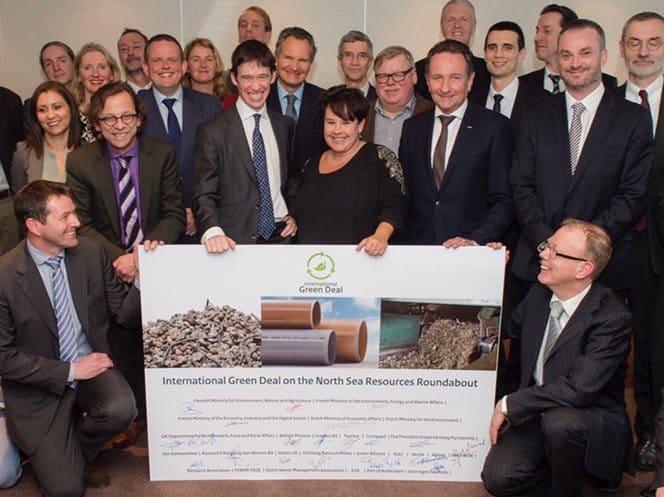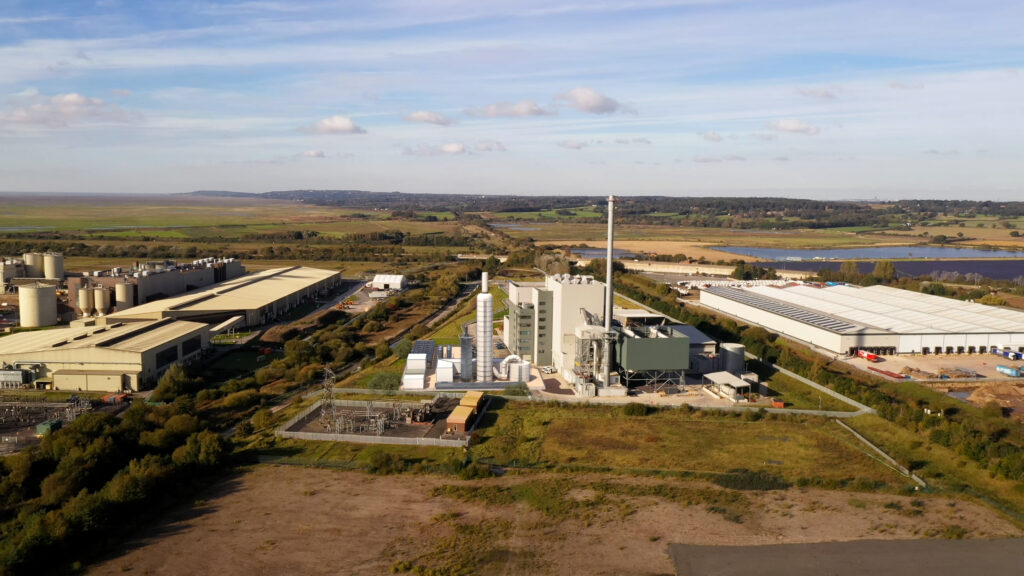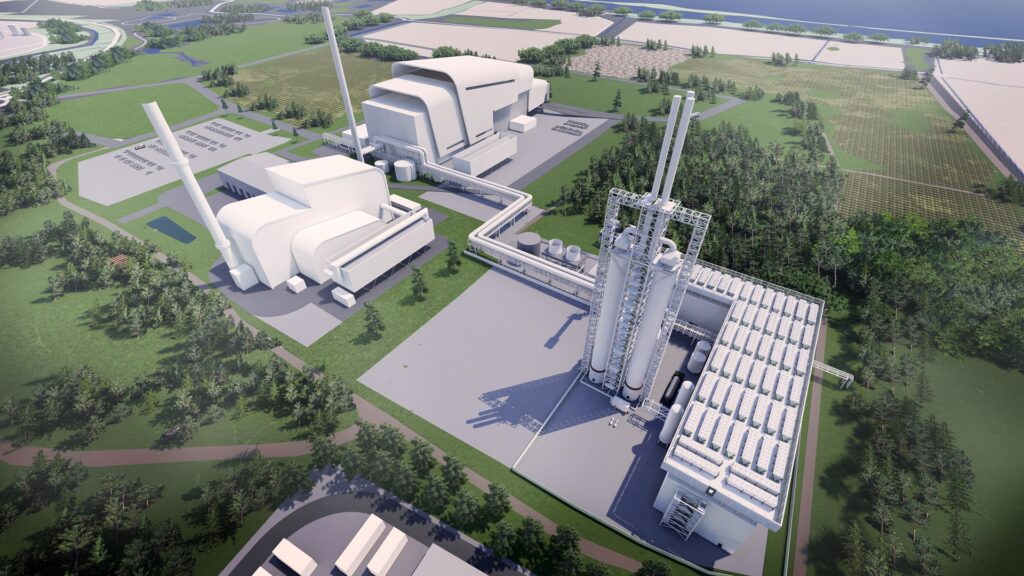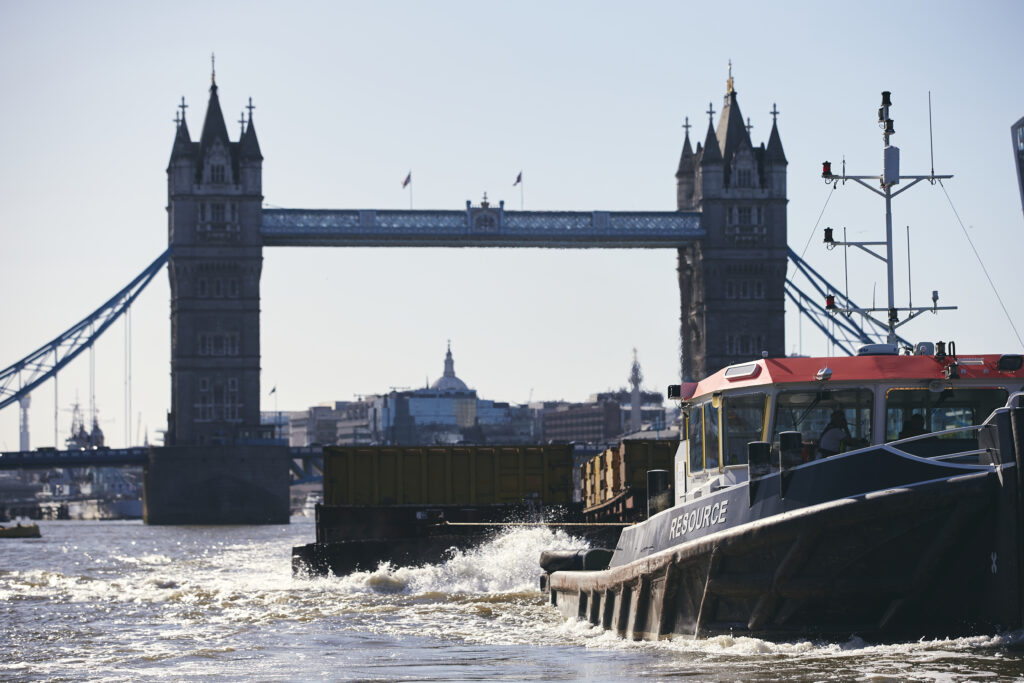
The deal could also impact on the trading of refuse derived fuel (RDF), plastics and compost.
Signed in Brussels by ministers, industry associations and NGOs from the four countries on Thursday (March 3), the North Sea Resources Roundabout green deal will reportedly enable IBA – residual waste from incinerators – to be “processed better”.
The deal will allow improved recovery from IBA of plastics and ultra-fine non-ferrous metals such as aluminium, lead, zinc, silver and gold, with one Dutch company – Inashco – having already developed a technique to recover these materials from IBA.
Meanwhile, the deal also removes some trade barriers, meaning that UK companies – such as Pheonix Ballast – can more easily export residual waste to the Netherlands to extract resources from the waste.
Previously, metals and recyclable plastic found in IBA have been difficult to trade internationally because such secondary raw materials are regarded differently in different countries and these resources have often ended up as waste.
Commenting on the Roundabout deal, Dutch environment minister Sharon Dijksma said: “I want to give those companies leading the way in sustainability more scope to innovate, in order to make our economy greener. And that’s exactly what this deal does. By redefining raw materials and working with our neighbours, it will be easier for businesses to innovate and operate in this area. That’s good for the environment and will also boost trade between countries in the North Sea region.”
“I think the North Sea Roundabout Initiative… has been a really useful way of thinking about how the circular economy can actually operate in practice in the European Union, particularly because of its ability to focus on really specific issues”
Rory Stewart
Defra resources minister
Further work
A team made up of government representatives and business communities from the participating countries will continue to work on further solutions aimed at removing barriers at borders.
As well as looking at non-ferrous metals, this team will also investigate how the trading and recovery of compost and PVC material can be improved. In total, a maximum of 10 material flows will be investigated over the course of the green deal’s five year lifespan.
UK
UK resources minister Rory Stewart welcomed the North Sea Roundabout initiative – which was introduced and chaired by the Netherlands – as a “really useful way of thinking about how the circular economy can actually operate in practice in the European Union, particularly because of its ability to focus on really specific issues such as for example, PVC, bottom ash and what’s been happening with compost”.
Speaking during Friday’s EU Environment Council meeting in Brussels (March 4), Mr Stewart added: “We also in the UK are quite proud of what’s been happening recently in our own industrial symbiosis. We have created about 10,000 jobs out of the recent projects and we’d like to do more.”
The UK government is currently reviewing whether recovery of IBA material should count towards the nation’s overall recycling performance and has asked the European Commission for a ruling (see letsrecycle.com story).
Currently, IBA does not count towards recycling rates, but the UK still needs around 7% more recycling in order to hit the EU target of 50% by 2020.
This, along with the Roundabout deal agreed last week, means Defra may look to soften its stance on the classification of IBA in the near future.
Resource Association
Resource Association chief executive Ray Georgeson also welcomed the deal, commenting that it “has the potential to unlock barriers that hamper the flow of secondary resources across Europe without endangering the environment”.
He explained: “With the prospect of encouraging investment in a more circular economy in Europe and generating a good spirit of partnership across borders, we warmly welcome it and congratulate the Dutch Government on taking this important initiative so far so quickly.”
The Roundabout deal was initiated by the Netherlands with the assistance of Dutch consultancy Acceleratio. The Netherlands currently holds the Presidency of the EU until June 30 2016, during which time it has said one of its priorities is strengthening the circular economy.











Subscribe for free